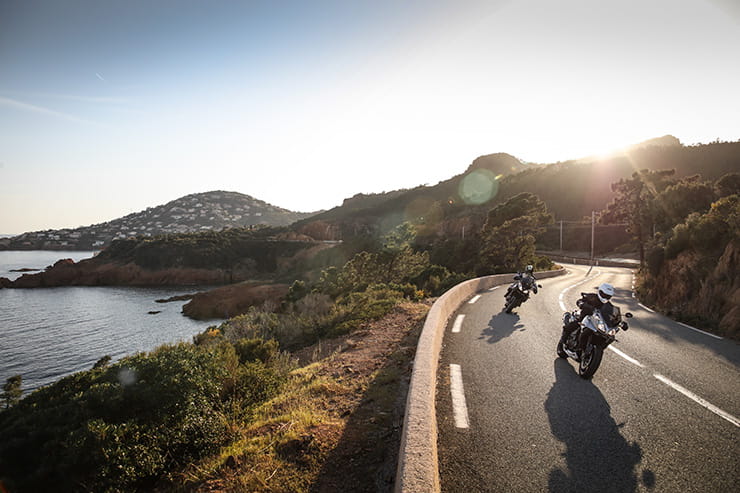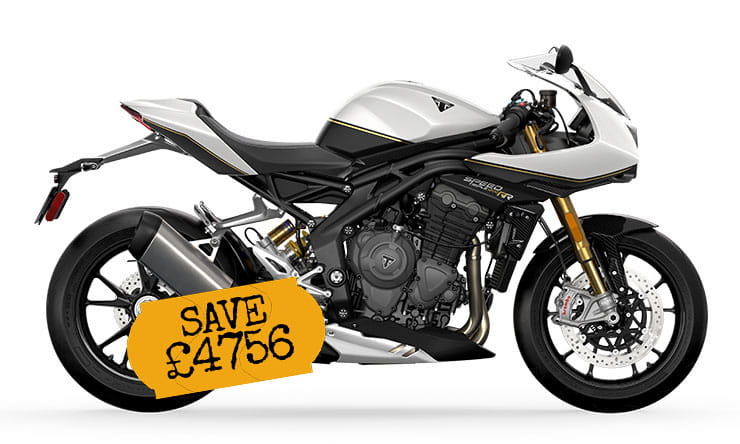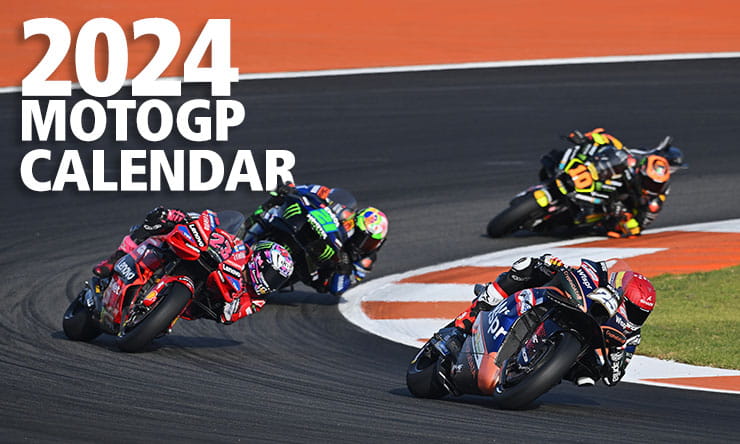France has always been a great place to ride; amazing roads, little traffic, welcoming locals, great scenery and fantastic food. You just need to be aware that the language gap's not the only thing they do differently over there...
Even if you've been to France before, there are several new rules and things you need to remind yourself of before hopping on the ferry. Here’s a roundup of all you need to know (and by the way, the last one's the most important).
See our guide for a full checklist of paperwork and equipment needed to ride in the EU post-Brexit.
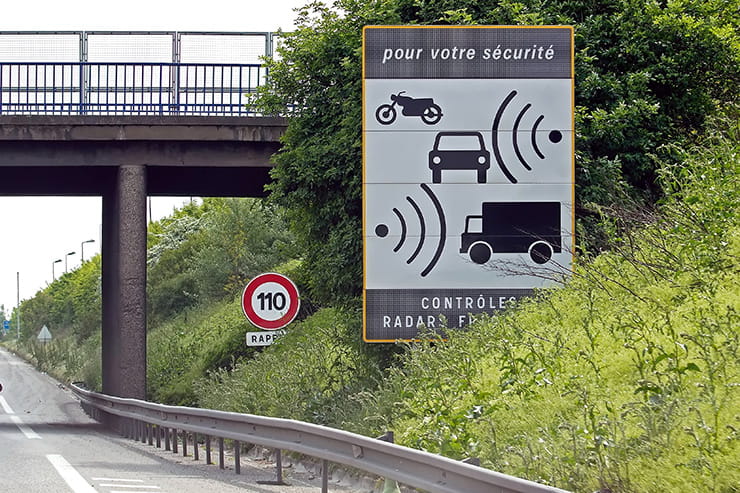
Speed limits across France have changed
French speed limits
What's changed? From July 2018 France controversially adopted a blanket 80km/h (50mph) limit on any two-way roads with no central barrier.
It was billed as a two-year safety experiment, and when the casualty rates didn't budge, the government reluctantly dropped it in 2020 and handed the decision back to individual Départements as to whether they stuck with it or not. Some did, some didn't, and the restrictions on exactly which roads now re-qualify for the higher limit are complicated, so now it's even more confusing! Best to assume that the upper limit is 80km/h unless you see clear signage otherwise.
What's still the same? Everything else. 130kph (80mph) is allowed on motorways, but 110kph (68mph) if it's raining and on urban motorways.
Unless indicated otherwise, 50kph (30mph) is the rule in towns and villages but there are no signs – the limit begins as you pass the red-bordered village sign and ends as you pass the crossed-out sign on the other side.
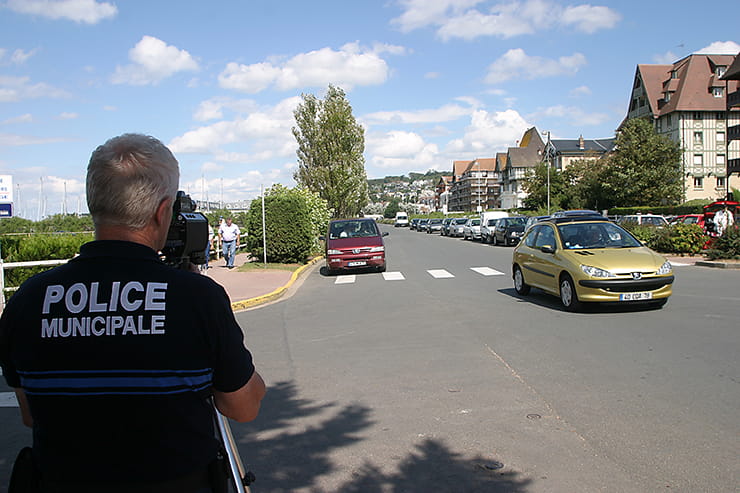
Watch out for warning of speed traps from other motorists
On-the spot fines are the norm. If you can't pay or if you've grossly exceeded the limit (around 50kph over the motorway limit is enough), they can impound and even crush or sell your bike, so you've been warned. Speed cameras are now VERY common, but one Brexit bonus is that camera fines will no longer follow you home (although that comes with caveats, explained a bit later).
Even though speed cameras don't have the same sting as before, there are still plenty of manned speed traps. It's common to find a speed trap hidden away under a bridge just before a major motorway services. If you're caught by a mobile radar, a chase car or bike will pull you into the services where there's a cashpoint, so you can pay the fine on the spot (which also saves them some paperwork). Any kind of device that warns you you're nearing a speed camera (even if it's just a sat-nav with locations loaded) is strictly illegal. But you'll often be warned of a speed trap by oncoming vehicles flashing their lights at you – don't ignore it!
While we're on etiquette, it's also normal to thank cars that’ve got out of your way (and most will do so happily) with a waved right foot (since your hand will be occupied on the throttle). And it's very bad form not to acknowledge oncoming bikes with the general Euro-wide waved peace-sign gesture using your left hand.
Cross-border fines
What's changed? Since Brexit, the treaty that allowed sharing of info with foreign police forces is no longer in effect, so for the moment at least, speed camera fines are highly unlikely to follow you home. That doesn't mean you can just hoon around everywhere though – there will still be plenty of physical speed traps to dodge, and there is likely to be a heavier Police presence near ferry ports and on popular motorways at peak holiday times (and on big car and bike race weekends). You can also bet that if you trigger a whole load of cameras, then you're more likely to find yourself pulled over at the point of leaving the country.
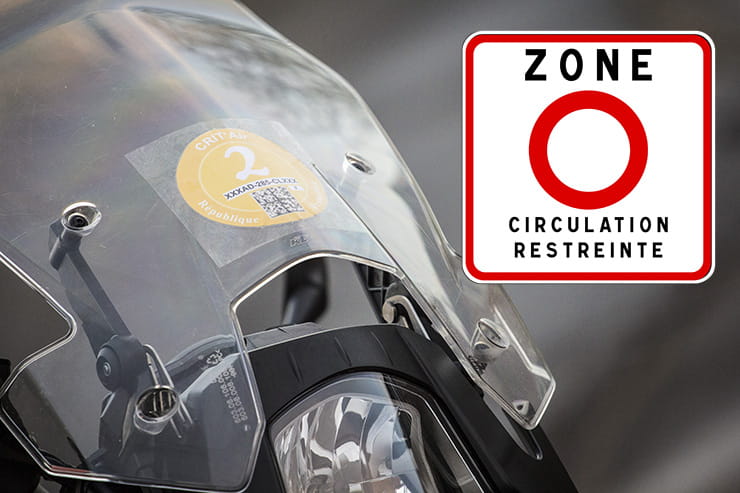
If you don’t have a vignette, you could be fined
Pollution rules in France
What's changed? Lots. France – or at least many of her major cities – has over the past few years adopted a system of Vignettes (stickers) graded from 0 to 5, identifying the EURO pollution levels of various vehicles (0 is cleanest). Some cities now refuse entry at any time to vehicles with no sticker, or with a sticker showing level four or five. Others put temporary bans in place at times of particularly high pollution levels (in practice, usually after a period of hot summer weather). The good news is that stickers are only a few Euros and available easily from www.certificat-air.gouv.fr, and last the life of the vehicle. The bad news is that bikes first registered before 31 May 2001 aren't eligible for a Vignette at all, so are completely banned from many areas, and bikes registered up to the end of June 2004 only get a level four Vignette and can be banned from some areas if pollution levels are very high.
The main no-go area is Paris, within the Peripherique ring road, where there’s no entry without a Vignette from 8am to 8pm on weekdays. But Lyon, Strasbourg, Lille and Toulouse all have varying restrictions when pollution levels are high, and Grenoble has similar restrictions, but extending over a much wider area and covering much of the useful corridor towards many of the most popular Alpine passes. Fines for non-compliance are 68 euros in most areas, 35 euros in Grenoble.
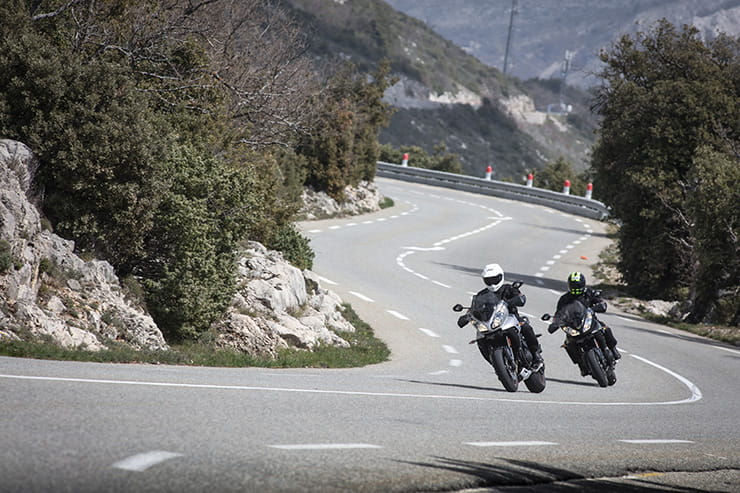
Compulsory kit – what you MUST take
What's Changed? It's now obligatory to wear gloves while riding a bike or scooter. And they're supposed to be CE-approved, too. In practice, as long as they're obviously proper protective motorcycle gloves, you'll be fine.
It's also now required to carry a Hi-Viz jacket or tabard. You don't have to wear it on the bike, but it does have to be accessible and you do have to wear it if you're stopped and off the bike in a vulnerable position – for example on a motorway hard shoulder. There's also a recent restriction on in-ear speakers for sat-nav, intercom, phone or music, which are no longer allowed for the driver of any vehicle.
What still the same? You still need to have approved reflective stickers on your helmet, but almost no one does (including the locals), and as a visitor it's highly unlikely anyone will notice or care. Your headlight should be on dipped beam during the day (most modern bikes have dip on all the time anyway).
You also need to carry a breathalyser, but it's a law that was widely ignored from day one and few officers will even bother asking. There's no fine for not having one anyway...
You still don't have to carry a spare bulb kit; despite what some motoring organisations and pub experts will tell you, it's never been compulsory. On the other hand, if you get stopped with a light out and can't fix it on the spot, you might be stopped from continuing on your way. Your choice.
Do I need travel insurance?
Just like any holiday, a trip on a motorcycle – be it in the UK, Europe or beyond – can be ruined by delays, lost documents, illness and more. There are plenty of travel insurance options, but you need to make sure you get a policy that includes riding motorcycles, and if it does, that it's for bikes of the engine size you'll be riding (many only cover up to 250cc). At its most basic, you should look for insurance that provides cover for the following:
- Medical expenses
- Loss or theft of personal possessions
- Lost or delayed luggage
- Loss of your passport and other documents
- Travel delays and disruptions
- Having to cut your holiday short
In addition though, if you’re taking a motorcycle (or you're renting one while you’re away) be sure that your insurer will cover you for any medical expenses, should you have an accident. You must also think about where you’re riding – some policies won’t cover you if you’re trail or enduro riding, or if you’re on a race-track. Remember – this isn’t about your bike being covered, it’s about your medical expenses, should the worst happen.
If you're only going away once, a single-trip policy will probably be all you need, but also consider an annual policy, which could extend to cover your family holidays too (a good insurer should also be able to offer cover for your whole family).
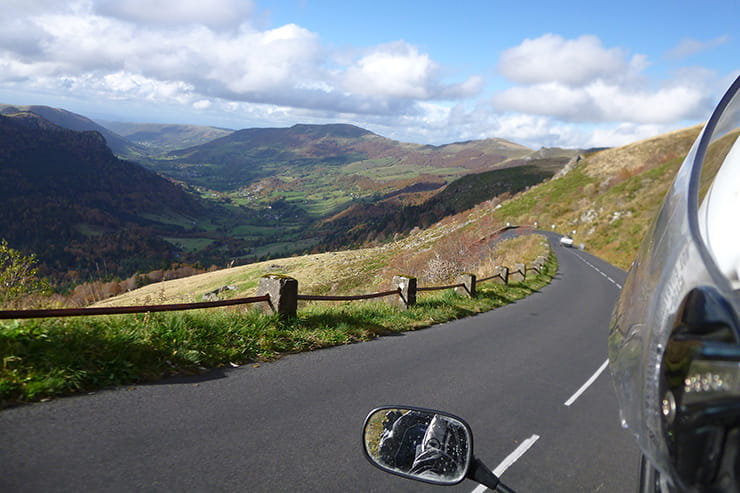
Getting fuel in France
What's changed? The price. A couple of years ago the French authorities whacked an extra load of tax on fuel, and it's now mostly more expensive than in the UK. You'll also find that the standard unleaded fuel is now E10 - if your bike's not happy with that, go for 98 instead, ideally from a branded garage rather than a supermarket.
What’s still the same? It's still best to shop around if possible, and always try to avoid filling up on the motorway as prices are astronomical. Supermarkets are usually the cheapest option, although not always.
Look out for Total garages too, as just occasionally they're as cheap as supermarkets – there's some evidence this is the case where they're close to refineries, but it's also often the case where they're right next to supermarkets, which you'd expect to undercut them.
Don't expect to find manned stations 24/7, especially out in the sticks. It's much more likely you'll need to use a credit or debit card-operated unmanned station.
Most UK cards will work in most machines, but there are odd exceptions. Try to make sure you have at least a couple of alternative options, and try them out when it's not critical – not at 3am in the middle of nowhere!
Some people report that the unmanned machines can pre-authorise a certain amount (say 100 euros) and then refund the difference later. Which can cause a problem, especially with some pre-loaded or debit cards, where the refund hasn't been processed by the time you try to use the card again, so the card's over its limit and is refused...
French toll roads
What's changed? Nothing; still the fastest – if also the most boring – way to cross big lumps of France. They’re far cheaper for bikes than cars, but costs can still mount up on a long trip.
On some holiday weekends (and all year round at many toll bridges), passage is free for bikes; look out for signs directing you towards a separate lane off to one side.
If you do need to pay, try and use a manned booth if you want to avoid credit card charges, although it doesn't cost as much to use a UK card for tolls as it does for other charges.
Documents required to ride in France
What's changed? The UK's not in the EU anymore, that's what. So you need:
- Driving licence (plus 1968 pattern International Driving Permit if you still have a paper licence or one issued by the Isle of Man, Gibralter or Channel Islands)
- Passport (issued less than 10 years previously and with more than three months left to run on your return date)
- Registration document (and form V103 from your finance company if appropriate)
- Proof of insurance (you no longer need a Green Card).
You must be able to present originals of any of these on demand if pulled over – failure to do so is punishable by an immediate fine.
Breakdown insurance is highly recommended. Read the small print though; many policies insist you buy cover for the entire journey, so that must include the day that you leave home and not just begin as you land in France, or you may find you have no cover at all.
You should also carry a Global Health Insurance (GHIC) card to avoid potential expensive medical bills (existing EHIC cards are also still accepted while in date), but it's also recommended to take out separate medical insurance including repatriation (see above).
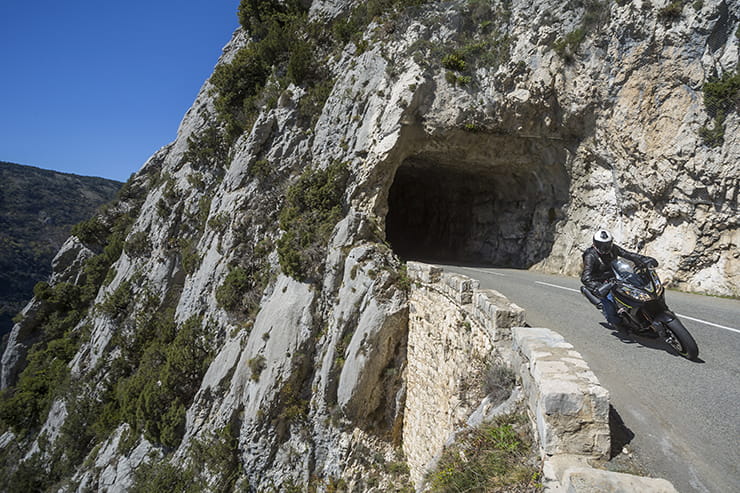
Food, drink and accommodation in France
What's changed? Nothing (apart from lingering knock-on effects of Covid shut-downs on the hospitality industry, of course). France is still a great place to eat out, and there are plenty of well-priced hotels and B&Bs to be found. But away from the bigger towns, you're unlikely to find a hotel room – or even an open restaurant – if you turn up late at night. Unless you've pre-booked, out in the sticks it pays to stop earlier in the evening and give yourself plenty of time to go on to the next town if necessary.
These days there are quite a few out-of-town convenience hotels – many with no staff, just an automated check-in system using credit cards – like Ibis, Novotel, BritHotel etc. Efficient, but bland to the point of sterility, and rarely with any secure parking for your bike.
Campanile hotels on the outskirts of medium-sized towns are a good compromise – modern, but usually family run, with proper restaurants serving regional food at good prices.
You can usually just turn up at campsites, but they can get very, very busy in July and August, and a lot shut up shop completely in early September.
Prices vary hugely – look for a Camping Municipal for the best value; they’re run by local towns/villages, are usually pretty basic but clean and cheap (sometimes just a few euros for a bike and tent). You can find most of them at www.camping-municipal.org. Anything with swimming pools etc is likely to be geared towards families and be a lot more expensive.
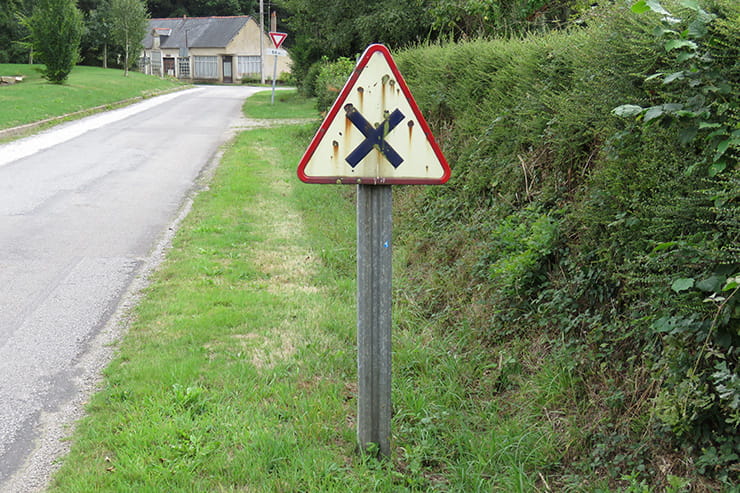
Beware of Priorité à Droite! Image by Yodaspirine
What is Priorité à Droite?
What's changed? Nothing, but it's still the thing most likely to catch you out and put you in hospital or worse.
Priorité à Droite is the archaic rule that gives drivers pulling out from the right priority over those already on the road – completely the opposite of what you'd expect. Which wouldn't be so bad but a lot of drivers won't even look as they pull out.
On main roads a junction with Priorité à Droite should be signalled by a triangular sign with a red border and a black cross on a white background. Elsewhere (and especially in towns and villages) you'll see a diamond-shaped sign with a white border and yellow centre: this means your road has priority. If it has a black diagonal line through it, that means your road doesn't have priority.
You can't trust the locals to actually take any notice of any of this though.
The bottom line is it's always going to be the bike that comes off worst, so always assume that anyone approaching you from the right has your very worst interests at heart...



